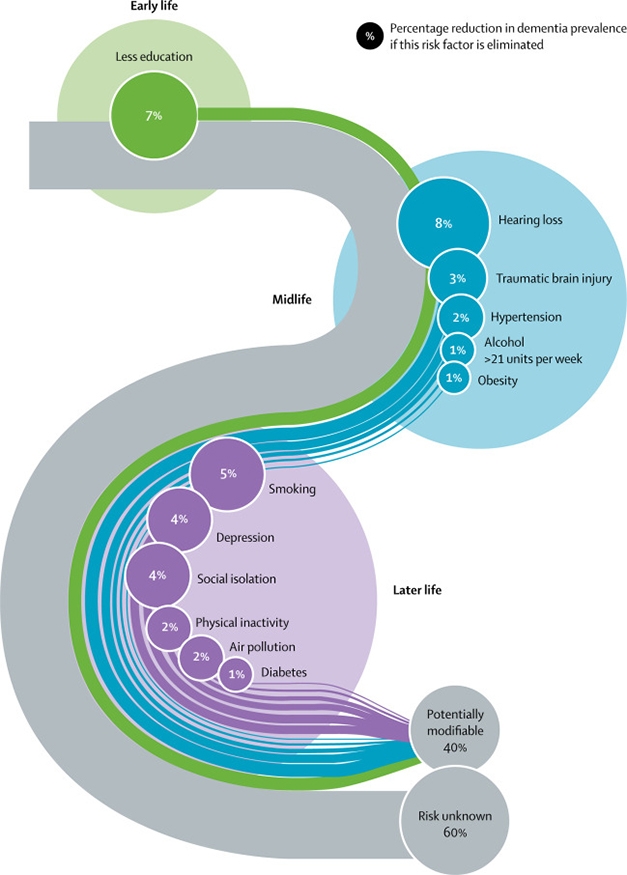The Lancet Commission is a group commissioned by the Lancet to analyze dementia prevention, intervention, and care. As we've said before, the Lancet is one of the oldest and most prestigious medical journals in the world that publishes peer reviewed research. In 2017, the commission published the results of their work, concluding that 35% of dementia cases were preventable.
But at this year's Alzheimer's Association International Conference (which we discussed extensively two weeks ago), the commission updated their conclusion to estimate that 40% of dementias are preventable. What changed? They added excessive alcohol consumption, air pollution, and traumatic brain injury (TBI) to their list of preventable causes. We have previously addressed alcohol and air pollution as causes of dementia in this blog, and we discuss TBI in Beating the Dementia Monster.
The commission provided an interesting but somewhat cryptic graphic to show the role of each of twelve known and suspected potentially modifiable risk factors for dementia. What's interesting about the graphic is how they show the influence of the factors based on the stage of life in which they occur. Educational achievement in early life is an important factor with the potential to eliminate 7% of cases, while there are five factors in mid-life and six factors in later life.
Some people at the conference were confused by the percentages assigned to each factor. According to the commission, the numbers corresponded to the per cent reduction in cases if the factor is eliminated. You can read more here.


No comments:
Post a Comment